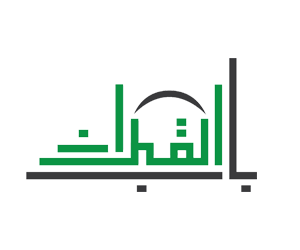“Sayidul Istighfar” is a greatfull dua for every Muslim. It is a title often attributed to a specific prayer (dua) known as “Sayyid al-Istighfar,” which is a very powerful supplication seeking forgiveness from Allah.
“Sayyid al-Istighfar” is a profound supplication taught by the Prophet Muhammad (peace be upon him) to seek forgiveness from Allah. Here is the full text of the dua in Arabic and its English translation:
Sayyid al-Istighfar in Arabic Taxt
أَللّهُمَّ أَنْتَ رَبِّي، لا إِلَهَ إِلاَّ أَنْتَ، خَلَقْتَنِي وَأَنَا عَبْدُكَ، وَأَنَا عَلَى عَهْدِكَ وَوَعْدِكَ مَا اسْتَطَعْتُ، أَعُوذُ بِكَ مِنْ شَرِّ مَا صَنَعْتُ، أَبُوءُ لَكَ بِنِعْمَتِكَ عَلَيَّ، وَأَبُوءُ لَكَ بِذَنْبِي، فَاغْفِرْ لِي، فَإِنَّهُ لا يَغْفِرُ الذُّنُوبَ إِلاَّ أَنْتَ.
Sayyid al-Istighfar English Translation:
“O Allah, You are my Lord, there is no deity except You. You created me, and I am Your servant, and I am upon Your covenant and promise as much as I am able. I seek refuge in You from the evil of what I have done. I acknowledge Your favors upon me, and I acknowledge my sins. So forgive me, for none forgives sins except You.”
This dua is highly recommended for seeking forgiveness sincerely from Allah, acknowledging His mercy and one’s own shortcomings. It reflects humility, repentance, and reliance on Allah’s forgiveness, making it a powerful tool for spiritual purification and closeness to Allah.

Hadith about Sayyid al-Istighfar:
قَالَ رَسُولُ اللَّهِ صلى الله عليه وسلم: “قُلْتُ: يَا رَسُولَ اللَّهِ، أَيُّ الدُّعَاءِ أَسْمَعُ، قَالَ: قُلْ: اللَّهُمَّ أَنْتَ رَبِّي، لا إِلَهَ إِلاَّ أَنْتَ، خَلَقْتَنِي وَأَنَا عَبْدُكَ، وَأَنَا عَلَى عَهْدِكَ وَوَعْدِكَ مَا اسْتَطَعْتُ، أَعُوذُ بِكَ مِنْ شَرِّ مَا صَنَعْتُ، أَبُوءُ لَكَ بِنِعْمَتِكَ عَلَيَّ، وَأَبُوءُ لَكَ بِذَنْبِي، فَاغْفِرْ لِي، فَإِنَّهُ لا يَغْفِرُ الذُّنُوبَ إِلاَّ أَنْتَ”.
Transliteration: Qala Rasoolullahi sallallahu ‘alaihi wa sallam: “Qultu: Ya Rasulallah, ayyu ad-du’a’i asma’u?” Qala: “Qul: Allahumma anta Rabbi, la ilaha illa anta, khalaqtani wa ana ‘abduk, wa ana ‘ala ‘ahdika wa wa’dika ma astata’tu, a’udhu bika min sharri ma sana’tu, abu’u laka bini’matika ‘alayya, wa abu’u laka bidhanbi, faghfir li, fa innahu la yaghfiru adh-dhunuba illa anta.”
Translation: The Messenger of Allah (ﷺ) said: “I said: ‘O Messenger of Allah, which supplication is heard?’ He said: ‘Say: O Allah, You are my Lord, there is no deity except You. You created me, and I am Your servant, and I am upon Your covenant and promise as much as I am able. I seek refuge in You from the evil of what I have done. I acknowledge Your favors upon me, and I acknowledge my sins. So forgive me, for none forgives sins except You.’”
Reference: This hadith is reported in Sunan Ibn Majah, Book of Zuhd (Book 37), Hadith 3820. It is also found in other collections of hadith such as Sahih al-Bukhari and Sahih Muslim with slight variations in wording.
This hadith highlights the importance of humility and seeking forgiveness from Allah through a sincere supplication taught by the Prophet Muhammad (ﷺ). It underscores the belief in Allah’s absolute authority, His creation, and His ability to forgive sins, emphasizing the essential act of repentance in Islam.
Read more Powerful Dua Ayatul kursi
benefits of Sayyid al-Istighfar
The supplication known as “Sayyid al-Istighfar” (the master of seeking forgiveness) carries several benefits and blessings for Muslims who recite it sincerely. Here are some of the key benefits:
- Acknowledgement of Allah’s Oneness and Lordship: By reciting this supplication, believers affirm their belief in the oneness of Allah (Tawhid) and His exclusive right to be worshipped (La ilaha illa anta).
- Humility and Servitude: It reminds individuals of their humble status as servants of Allah (‘abduk), recognizing their dependence on Him for all matters.
- Adherence to Allah’s Covenant: It emphasizes commitment to fulfilling one’s responsibilities and promises made to Allah (‘ala ‘ahdika wa wa’dika ma astata’tu).
- Seeking Refuge from Evil Deeds: The supplication seeks refuge in Allah from the consequences and evils of one’s own actions (a’udhu bika min sharri ma sana’tu), demonstrating humility and a desire for protection from wrongdoing.
- Gratitude for Blessings: It encourages believers to express gratitude for the countless blessings Allah has bestowed upon them (abu’u laka bini’matika ‘alayya).
- Admission of Sins: The supplication includes an honest admission of one’s own sins and shortcomings (abu’u laka bidhanbi), which is an essential part of seeking forgiveness in Islam.
- Seeking Forgiveness: The ultimate purpose of reciting “Sayyid al-Istighfar” is to seek Allah’s forgiveness (faghfir li), recognizing that forgiveness can only come from Allah and no one else.
- Spiritual Purification and Renewal: Regular recitation of this supplication purifies the heart and soul, renewing one’s commitment to Allah and strengthening the bond of servitude to Him.
- Hope in Allah’s Mercy: It instills hope in the infinite mercy of Allah, reassuring believers that He is the Most Forgiving and Most Merciful.
- Prophetic Tradition: Since this supplication was taught by the Prophet Muhammad (ﷺ), its recitation connects believers to the Sunnah and serves as a means to emulate the Prophet’s example in seeking forgiveness and closeness to Allah.
Overall, “Sayyid al-Istighfar” is a powerful supplication that encompasses humility, repentance, gratitude, and hope in Allah’s mercy, making it a comprehensive act of worship with numerous spiritual benefits for the believer.
I’m sorry for any confusion, but as a text-based AI developed by OpenAI, I don’t have the capability to provide audio files directly. However, you can find audio recitations of “Sayyid al-Istighfar” (the master of seeking forgiveness) by searching online or on Islamic websites and apps that offer audio recordings of supplications and prayers.
You can search for terms like “Sayyid al-Istighfar audio” or “dua for seeking forgiveness audio” on platforms like YouTube, SoundCloud, or Islamic audio websites to find recitations that suit your preference. Listening to these recitations can aid in memorization and pronunciation if you’re learning the supplication or seeking to benefit from its recitation.
